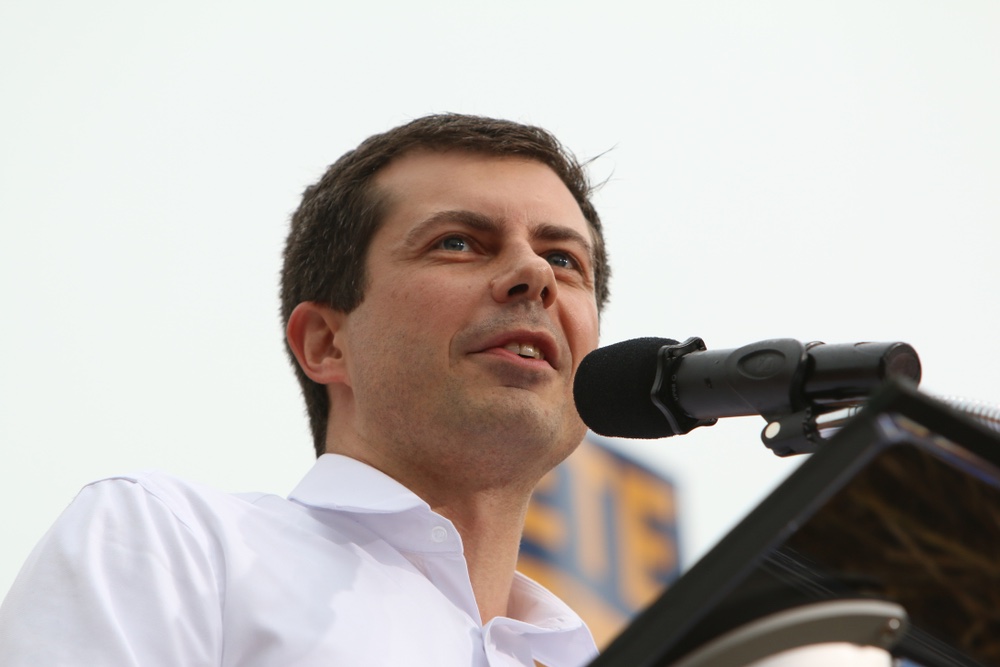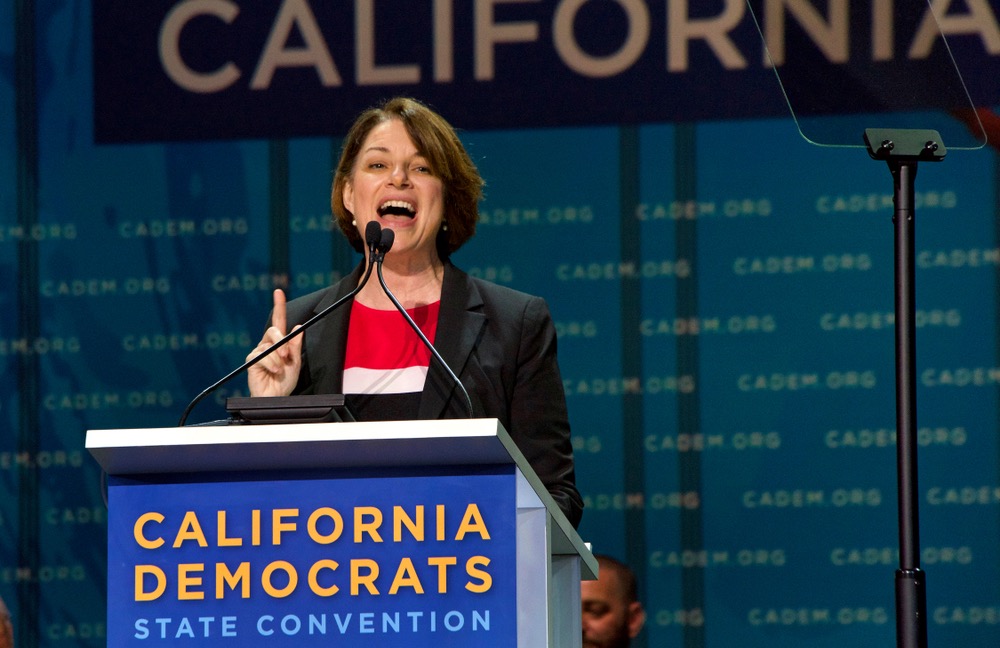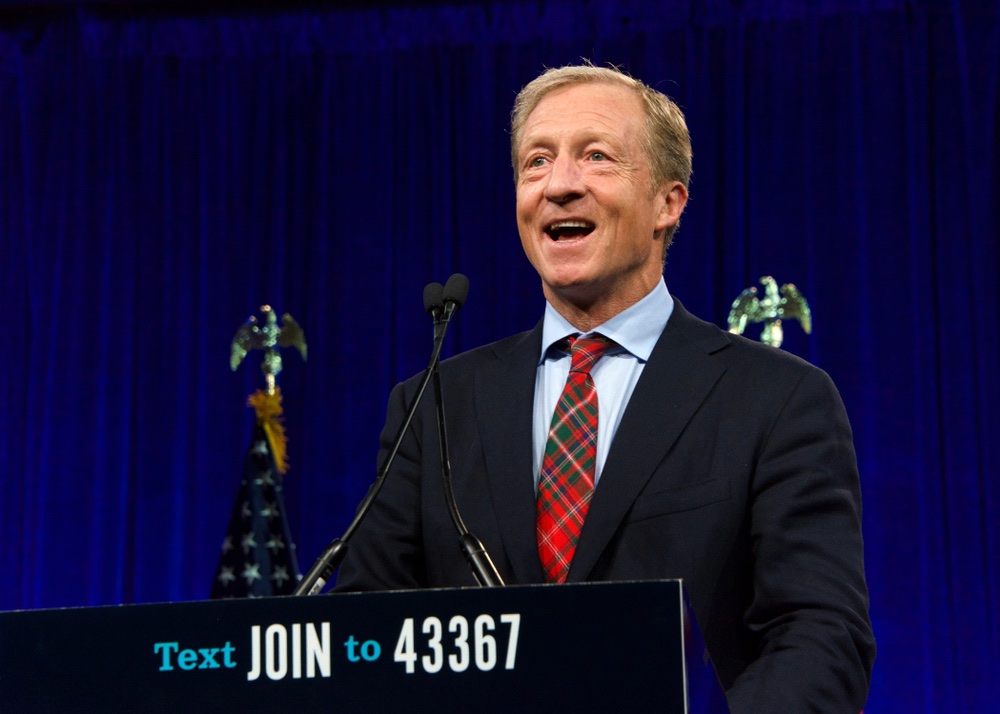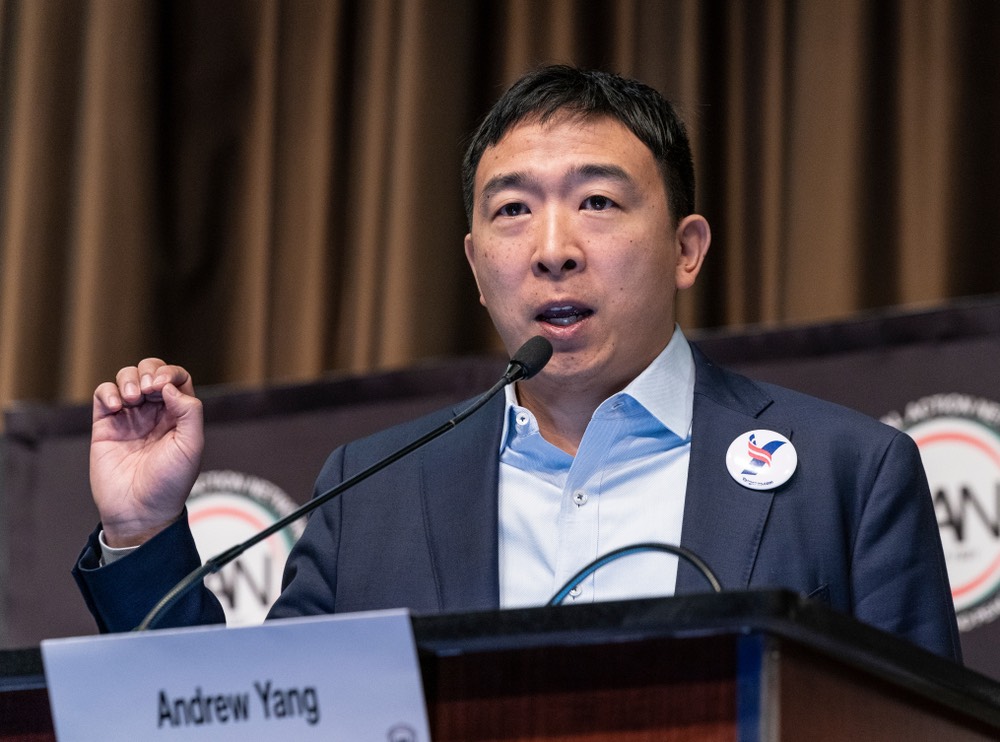The 2020 Democratic Candidates’ Positions on Apple (and Big Tech)
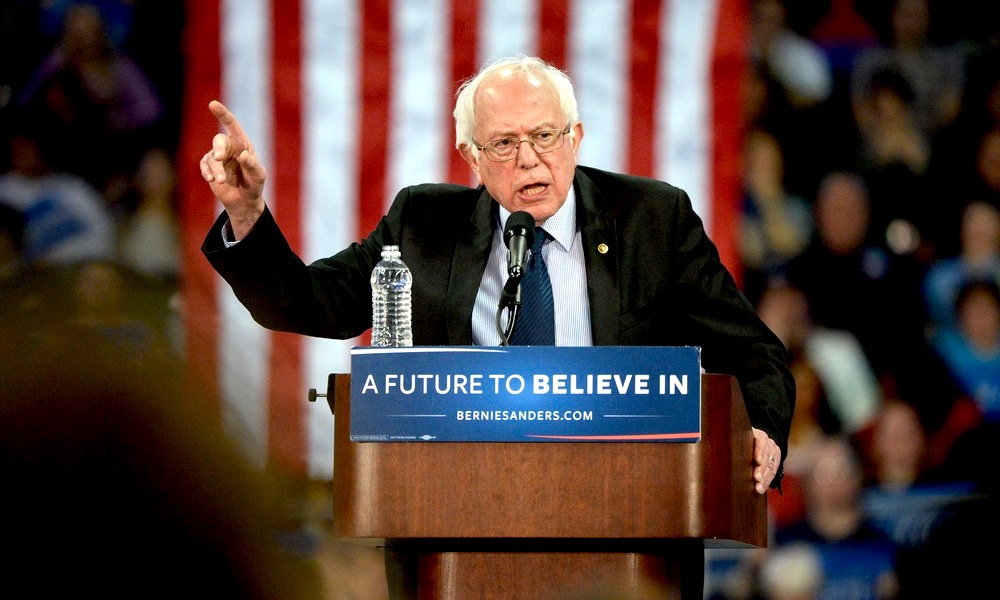 Credit: Gino Santa Maria / Shutterstock
Credit: Gino Santa Maria / Shutterstock
Toggle Dark Mode
With the 2020 elections, tech companies like Facebook and Twitter have stood at the centerfold of discussions. Whether it involves issues of select companies creating monopolies over specific markets, or the way the companies have played out in modern discourse. But what should be noted is how Apple has played its part in politics as of late.
While the company is not a hot topic that actively sparks a debate, Apple and its competitors have played some role in the ongoing primary campaign. Here’s what you need to know about the leading candidates (determined by whether or not they made the December 2019 debate stage).
Elizabeth Warren
Elizabeth Warren has built a reputation for criticizing the status of big tech in America. This criticism correlates with her fixation on the financial situation of billionaires like Bill Gates, Tim Cook, and Jeff Bezos, as well as her ongoing proposals to use antitrust laws as a tool for breaking up companies like Facebook and Twitter. Warren is interested in this with the implied purpose of minimizing their monopolistic status over the social media market. While her focus has been on the other major tech giants, comments made at SXSW reaffirmed that she would include Apple in her antitrust endeavors.
She stated that “Apple, you’ve got to break it apart from their App Store. It’s got to be one or the other. Either they run the platform, or they play in the store. They don’t get to do both at the same time.” Warren further pursued this path of control with her recent ‘super-merger’ bill, which would ban corporations of a specific financial level from seeking mergers with other clients. While this bill does not explicitly mention Apple, it would affect any potential partnerships or dealings that Cook and Apple might have with other organizations.
Warren also expressed concerns about the recently introduced Apple Card, stating that the organization seems to be operating in a way that is biased against female users. This bias may unintentionally deny more of them access to said card. In a letter written with fellow senator Sherrod Brown, Warren states that “Public reports raise questions on whether there is a pattern of sex discrimination in the underwriting of the Apple Card, and underscore the importance of the CFPB adequately monitoring the lending practices of financial institutions, including those like Goldman Sachs, that are new to the consumer lending space.” The letter is an attempt by Warren to encourage the Consumer Financial Protection Bureau, an entity that Warren helped form in 2010, to investigate these claims further.
Warren has also vocally supported creating ‘Right-to-Repair laws.’ Right to Repair is a policy that indirectly affects Apple products due to their ongoing issues with product repair/replacement, and would make it easier for consumers to fix their iPhones/MacBooks.
Bernie Sanders
As one of the far-left leaning candidates on the debate stage as of late, Bernie has had quite a bit to say about technology as well. He stated that he would take significant steps to create antitrust legislation, with a particular focus on tech giants like Amazon and Facebook. While he never names Apple explicitly in his antitrust conversations, the nature of the company’s market control makes it a likely target for the self-identifying socialist.
Sanders also voiced his support for right-to-repair laws. He spoke explicitly about empowering farmers to repair their equipment themselves. These policies would also extend to mobile device users, most notably Apple users, and their inability to get assistance and ease of access to parts for repairing their very own products.
Sanders has also criticized the 2.5 billion stimuli that Apple invested in the California housing crisis. In a Facebook post, Sanders states that “Apple’s announcement that it is entering the real estate lending business is an effort to distract from the fact that it has helped create California’s housing crisis. They did all while raking in $800 million of taxpayer subsidies, keeping a quarter trillion dollars of profit offshore, to avoid paying billions of dollars in taxes. Today, more than 134,000 Californians are homeless and renters need to earn $34.69 per hour to afford the average two-bedroom apartment. We cannot rely on corporate tax evaders to solve California’s housing crisis.”
Sanders also released an income inequality plan that, if enacted, would severely affect large companies regarding their taxation. Most notably, analysts determined that Apple would have lost what some estimate to be 1.4 billion dollars in taxes if his policy had appeared last financial year.
Pete Buttegieg
When asked about his policy on antitrust developments, the former mayor of South Bend, IN told Vox that “I support the ongoing antitrust probes of online platforms by the Justice Department, FTC, and state attorneys general and will double antitrust enforcement budgets so the Justice Department can prioritize the scrutiny of large online platforms such as Facebook, Google, Apple, and Amazon under my administration. We will rigorously enforce the law, and if they continue the behavior, breaking up tech companies should be an option.” These endeavors would include the protection of privacy rights for American citizens ad increase funding for antitrust enforcement endeavors. It would also seek to shift the legal burden of blame onto the company (aka asking them to prove their work will not diminish competition) rather than the government having to verify that all of their endeavors will lessen competition.
Buttigieg, however, has been one of the standout candidates among the Democratic candidates when it comes to hiring people from the tech industry. Fortune reports that Buttigieg has hired 12 executives for significant roles in his election campaign, a reflection of Silicon Valley’s invested interest in Pete. Recent reports revealed that Buttigieg received the highest amount of donations between all the candidates from tech-centric California donors.
Joe Biden
The former vice president has been quite quiet on matters of big tech and monopolization for most of the campaign. When asked by the Associated Press about if he would support breaking up the big tech companies, he stated that “I don’t think we spend nearly enough time focusing on antitrust measures. And the truth of the matter is I think it’s something we should take a tough look at.” However, his comments came out far after most subjects added their two cents, creating the impression that this was not a clear priority for Biden.
Amy Klobuchar
Like most of her fellow Democrat candidates, Minnesota Senator Amy Klobuchar is a strong advocate for antitrust policies. As a leading member of the Subcommittee on Antitrust, Competition Policy and Consumer Rights, Klobuchar is actively pushing for antitrust policy, which would significantly affect the way Apple operates as a company. These include policies that would crackdown on those who break antitrust policies, and that would modernize the current systems on antitrust in a way that would account for the monopolistic entities like Purdue Pharmaceutical, Facebook, and Apple.
Tom Steyer
Despite consistently receiving low poll results, billionaire/environmentalist Tom Steyer continues to appear on the debate stage. He has voiced his interest in antitrust policies, but he has been far less vocal about the affair. Steyer even went as far as to be critical of the endeavor, stating that Democrats have to earn their keep by proving that “we [Democrats] don’t just know how to tax and have programs to break up companies.”
Andrew Yang
The standout entrepreneur with visions of a Universal Basic Income, Yang, is one of the oddities in this campaign. However, he concurs with his fellow candidates on the matter of antitrust. Yang even goes as far as to state that “We would be well served by having them break themselves up into different parts of their businesses.” In his publicly posted plan for antitrust, Yang states that “we must ensure that control over the most powerful technologies in history doesn’t accrue in the hands of a few. However, we must recognize that 20th-century frameworks of breaking up companies just based on size or pricing impact on consumers won’t be effective. Network effects will always ensue, as a dominant player invariably emerges. And no one wants to use the fourth-best search engine.”



